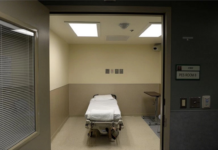ADHD: A Destructive Psychiatric Hoax
Nobody is denying that inattention, hyperactivity, and impulsivity can be real problems. The issue at stake, however, is whether it makes any sense to conceptualize this loose cluster of vaguely-defined problems as an illness.
Psychiatry: Between a Rock and a Hard Place
Psychiatrists have invented terms such as “mental illness” and “mental disorder,” the diagnosis and treatment of which is their bread and butter, their supposed area of expertise. People generally trust doctors.
The Hidden Epidemic Exposed: The New Tardive Dyskinesia (TD) Resource Center
The Tardive Dyskinesia Resource Center offers a simple yet thorough introduction to the drug-induced disorder, a list of offending medications, and illustrative videos. It is is one more step in the direction of educating the public, as well as the professions.
The Helping Room
Every culture has its share of individuals who break down in bewilderment. People who hallucinate, behave beyond norms, seek to die, think in strange ways.
Antidepressants and Pregnancy: The Risks and Potential Harm to Normal Fetal Development
For the past several months, MIA Continuing Education has been working with a small online education company to remake our CME/CEU lectures into full-bodied courses. Our first such course is on the risks that antidepressant use in pregnancy pose to the developing fetus. We think it covers a subject of utmost importance to our society.
Go Figure: Murder or Accident?
While Shipman’s killing spree with opiods was unfolding, North America was sinking into a prescription opioid epidemic that now accounts for 100 deaths per day, over 30,000 per year, over half a million since the epidemic began, perhaps the single greatest cause of death in America today.
The Case for Neuroleptics Reducing Recovery from 80% to 5%
On October 7th I gave a talk titled "The Transformation Triangle:
Public Education, Alternatives & Strategic Litigation." In thinking about my talk, I realized that I could piece together a very short video on neuroleptics reducing the recovery rate from 80% to 5%.
Mad in the Spanish-Speaking World
Locomún, a collective group in Spain, has launched MIA-Hispanohablante, an affiliated web magazine for the 400 million people who share Spanish as their first language.
The Difficulty of Challenging Deeply Personal Narratives
We should all tell our stories, not to prove other people wrong or to shame them, but to offer an alternative narrative. A narrative that recognizes that symptoms of mental disorders are cries for help, means of communication, and normal responses to an unjust society.
Go Figure: Study 329
In the light of Study 329, is the consent that people or their families have given to take a medication like paroxetine any more valid than the consent that, after the event, an inebriated woman is claimed to have given?
What Do Santa Claus and the Chemical Imbalance Have in Common?
Generally, most people, even little people, recognise that Santa is just a game. Children perhaps wholeheartedly believe in the story for a while but flaws in the narrative soon become apparent. Unfortunately, not nearly enough people recognise that the chemical imbalance is also a charade.
Picking Our Battles in the War on Prejudice and Discrimination
At Destination Dignity on World Mental Health Day, we marched, several hundred strong, from the Capitol Reflecting Pool to the Washington Monument — right down the middle of iconic Pennsylvania Avenue! As we marched, I heard the chant “Feel the reign of dignity—it feels like freedom!” and joined in.
$11.9 Million Paxil Suicide Verdict: The Inside Story
The judicial system and the public are becoming increasingly aware of the hazards of psychiatric drugs, including their capacity to make people behave in ways that are harmful to themselves and others, and contrary to their past behavior and character.
Turning the Tables: Using the Academy in the Battle Against Psychiatry
The impetus for this article is an exciting new scholarship endowed in perpetuity which has just been launched at University of Toronto. Called “The Dr. Bonnie Burstow Scholarship in Antipsychiatry,” the scholarship is to be awarded annually to a thesis student at OISE/UT conducting antipsychiatry research.
Opening A Dialogue In Mental Health
I have sometimes stopped en route to work, unsure how much longer I can continue. There is a sense of betrayal to my father and grandmother by working in a profession that failed them and is the only medical specialty to have its own survivor movement, not from the illnesses it hopes to treat, but from the ministrations of the profession itself.
Study 329 Taper Phase
Most doctors still affect surprise at the idea SSRIs might come with withdrawal problems. Regulators knew very clearly since 2002 about the problems, but have decided to leave any communication of these issues in company hands.
Rejecting the “Medications for Schizophrenia” Narrative: Part II
In this second article, I will further analyze the reasons why the unevidenced biological-illness approach to “schizophrenia” has become so entrenched in our society. Most importantly, I will discuss hopeful alternatives.
CHOICES Back on Track
Last year I reported that CHOICES, Inc. had lost its way and was implementing an ACT team. There is no doubt in my mind that CHOICES was on the wrong path, but the new Executive Director is committed to getting CHOICES back to a peer-run program.
Why Social Isolation Leads to Inflammation
We are wired for community. If we disconnect, our bodies will call us back to the sense of human connection that we are wired for, using the unexpected language of inflammation.
Healing Silence
Over 30 years ago, when I visited several Quaker meetings, often the extended silences between people speaking would create a warm, benevolent communion — an almost tangible energetic communication that softly vibrated between all who were present.
The Mental Health Reform Act of 2016 (SB 2680) Would Be a Huge Step...
There is indeed a crisis in the mental health business. The crisis derives from psychiatry's spurious and self-serving premise that all significant problems of thinking, feeling, and/or behaving are brain illnesses that are correctable by psychiatric drugs.
Powerful Advocacy has Shut Down Halloween “Attractions” that Ramp Up Prejudice
This year, two major North American theme park chains—Cedar Fair Entertainment Company and Six Flags—came up with some really terrifying concepts, featuring a creature that apparently haunts the nightmares of a lot of Americans: Me. Well, not exactly me, but people who, like me, have mental health conditions.
Evolution or Revolution? Why Western Psychiatry Won’t Change by Incremental Steps
...but how realistic is it to expect that the biological skew of Western psychiatry can be sustainably changed one small step at a time?
Study 329 Continuation Phase
All the fuss about Study 329 centers on its 8-week acute phase. But this study had a 24-week Continuation Phase that has never been published. Until Now.
Psychiatry’s Current Greatest Controversy: Fraud, Bullsh*t or What?
In the current issue of the journal Ethical Human Psychology and Psychiatry, Australian dissident psychiatrist Niall McLaren titles his article, “Psychiatry as Bullshit” and makes a case for just that. The great controversies in psychiatry are no longer about its chemical-imbalance theory of mental illness or its DSM diagnostic system, both of which have now been declared invalid even by the pillars of the psychiatry establishment. The great controversy today has now become just how psychiatry can be most fairly characterized given its record of being proven wrong about virtually all of its assertions, most notably about its classifications of behaviors, theories of “mental illness,” and treatment effectiveness/adverse effects.

































